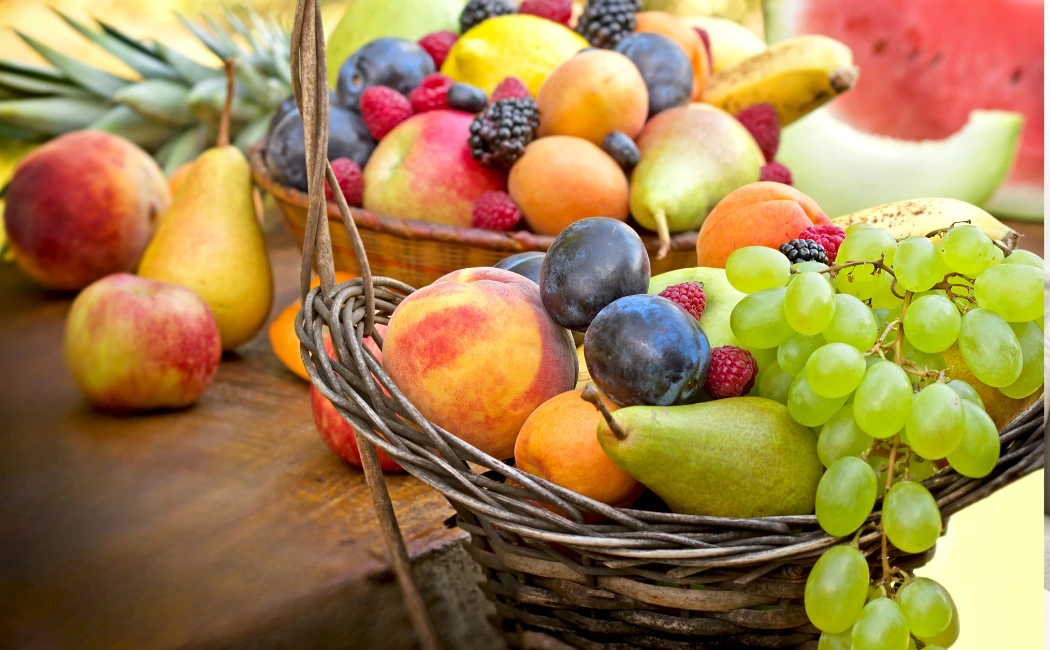The Power of Seasonal Fruits: Why Eating Locally and Seasonally Matters
Eating seasonal fruits is a simple yet effective way to boost your health, support local farmers, and reduce your environmental impact.
Seasonal fruits are ripe, flavorful, and packed with nutrients, making them the perfect addition to a healthy diet.
You May Also Like: Benefits of Eco-Friendly Fashion
Benefits of Eating Seasonal Fruits
- Higher Nutrient Content: Seasonal fruits are harvested at peak ripeness, ensuring optimal nutrient levels.
- Better Taste and Texture: Ripe fruits are sweeter, juicier, and more flavorful.
- Increased Antioxidants: Seasonal fruits contain higher levels of antioxidants, fighting free radicals and inflammation.
- Supports Local Farmers: Buying seasonal fruits from local farmers promotes community development and sustainability.
- Reduced Carbon Footprint: Locally grown fruits minimize transportation emissions.
- Cost-Effective: Seasonal fruits are often cheaper than imported or out-of-season options.
- Improved Digestion: Seasonal fruits are easier to digest, reducing the risk of digestive issues.
Top Seasonal Fruits to Enjoy
Spring:
- Strawberries (March-May)
- Rhubarb (March-May)
- Lemons (March-May)
- Apricots (May-June)
- Cherries (May-July)
Summer:
- Blueberries (June-August)
- Peaches (June-September)
- Plums (June-October)
- Nectarines (July-September)
- Watermelon (July-September)
Autumn:
- Apples (September-November)
- Pears (September-November)
- Quince (October-December)
- Cranberries (October-December)
- Persimmons (October-December)
Winter:
- Oranges (December-May)
- Grapefruits (December-May)
- Kiwi (December-May)
- Pomegranates (December-February)
- Avocados (year-round)
Incorporating Seasonal Fruits into Your Diet
- Visit Local Farmers’ Markets: Explore seasonal options and support local farmers.
- Join a Community-Supported Agriculture (CSA) Program: Receive fresh, seasonal produce.
- Experiment with New Recipes: Find creative ways to use seasonal fruits.
- Make Seasonal Fruit Salads: Combine fruits for a nutritious snack.
- Freeze or Preserve: Enjoy seasonal fruits year-round.
Health Benefits of Specific Seasonal Fruits
- Strawberries: High in vitamin C and antioxidants.
- Blueberries: Rich in antioxidants and brain-boosting compounds.
- Apples: Good source of fiber and antioxidants.
- Oranges: High in vitamin C and flavonoids.
- Pomegranates: Rich in antioxidants and anti-inflammatory compounds.
Conclusion
Eating seasonal fruits is a simple yet powerful way to improve your health, support local farmers, and reduce your environmental impact.
By incorporating seasonal fruits into your diet, you’ll experience the benefits of optimal nutrition, flavor, and community support.
References:
- United States Department of Agriculture. (2020). Seasonal Produce Guide.
- Academy of Nutrition and Dietetics. (2020). Eating Seasonally.
- Harvard Health Publishing. (2020). The Benefits of Eating Seasonal Fruits.
- National Institutes of Health. (2020). Phytochemicals and Health.
- Environmental Working Group. (2020). Seasonal Produce and Sustainability.
Additional Resources:
- United States Department of Agriculture: Seasonal Produce Guide
- Academy of Nutrition and Dietetics: Eating Seasonally
- Harvard Health Publishing: The Benefits of Eating Seasonal Fruits
- National Institutes of Health: Phytochemicals and Health
- Environmental Working Group: Seasonal Produce and Sustainability










